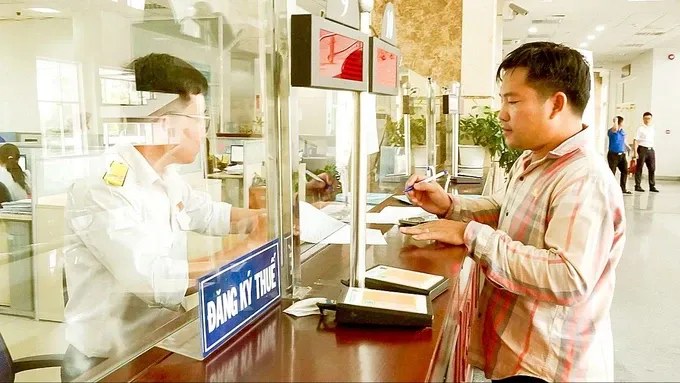
In recent times, there has been a proliferation of cases involving individuals being temporarily barred from leaving the country due to tax debts.
On September 11, the Binh Dinh Province Tax Department issued a notice to temporarily halt the departure of Luong Hoai Nam, General Director and legal representative of Bamboo Airways due to outstanding tax liabilities of the company.
However, the company attributed its predicament to an exceptionally challenging period from 2022 to 2023. Upon his appointment as General Director in October 2023, Luong Hoai Nam embarked on a comprehensive restructuring effort.
While the company's financial and business operations have since shown significant improvement, outstanding tax obligations persist, which the company has been unable to fully settle. Yet the international travel ban hinders his efforts to revitalize the company and navigate its financial difficulties, ultimately impacting the company's ability to fulfill its tax obligations.
Beyond cases arising from financial hardships, there are cases where the root cause lies in the taxpayers' lack of compliance. A HCMC-based lawyer noted that some businesses exhibit a disregard for settling tax debts. For instance, one small enterprise, owing a mere VND17 million (US$684) in taxes, ignored repeated reminders from the tax authorities until the need to travel abroad compelled them to hastily settle the debt along with late fees.
The General Department of Taxation reveals that as of August 14, the agency had issued travel bans to 17,952 individuals, representing a total tax debt of VND30.39 trillion ($1.22 billion). Among these, 10,829 taxpayers had abandoned their registered business addresses, owing a combined VND6.9 trillion ($277.7 million) in taxes.
These enforcement measures have yielded VND1.34 trillion ($53.94 million) in recovered taxes from 2.116 taxpayers. Notably, the tax authority has successfully collected taxes from 650 taxpayers who had ceased operations at their registered addresses, amounting to VND46.7 billion ($1.88 million).

In response to the persistent issue of high tax arrears nationwide, the General Department of Taxation issued Circular 4216 on September 23, urging local tax departments to intensify their efforts in tax debt management and recovery. This includes the implementation of travel bans for taxpayers with overdue tax liabilities subject to coercive measures, particularly those who have ceased operations at their registered addresses.
The imposition of such restrictions, especially on individuals serving as legal representatives of indebted companies, is mandated by the Law on Tax Management and the Law on Exit and Entry of Vietnamese Citizens. The tax authority's stance is that taxpayers have a responsibility to fulfill their tax obligations, and travel bans serve as one of several measures to recover outstanding taxes.
“This measure is employed only when there is a high risk of tax evasion to safeguard state revenue.”
Deputy General Director Dang Ngoc Minh of the General Department of Taxation.
In Circular 4216, the General Department of Taxation instructed local tax departments to issue tax debt notifications to taxpayers electronically via their electronic tax transaction accounts (etax). For taxpayers without an etax account but with a registered email address, the tax authority is tasked with sending notifications via email and the ‘etaxmobile’ application.
Taxpayers with overdue tax liabilities exceeding 60 days are required to be contacted regularly by tax officials to remind them of their outstanding debts and inform them of impending coercive measures if the debt remains unsettled for more than 90 days. For taxpayers with tax debts exceeding 90 days or those subject to coercive measures, tax authorities must promptly implement enforcement actions and publicize the information as required.
Amidst the tax authority's aggressive debt collection efforts, some individuals have reported being caught off guard by travel bans due to a lack of prior notification.
Experts contend that travel bans are a necessary measure for businesses that persistently refuse to pay taxes despite the tax authority's enforcement actions. However, for businesses facing genuine financial difficulties and demonstrating a willingness to comply, supportive measures should be explored. The tax authority is encouraged to publicly disclose and regularly update a list of individuals banned from travel due to tax debts, fostering transparency and accountability.
The Ministry of Finance is proposing a draft law to amend and supplement provisions of seven laws, including the Law on Tax Administration. Notably, the draft law stipulates that individuals engaged in business, household heads conducting business, and individuals acting as legal representatives of enterprises, cooperatives, and cooperative unions are subject to forced execution of administrative decisions related to tax management.
Consequently, the scope of individuals who may be subject to travel restrictions will be expanded. Currently, there are approximately 5.5 million business households nationwide, 3.5 million of which have been assigned tax codes.
























